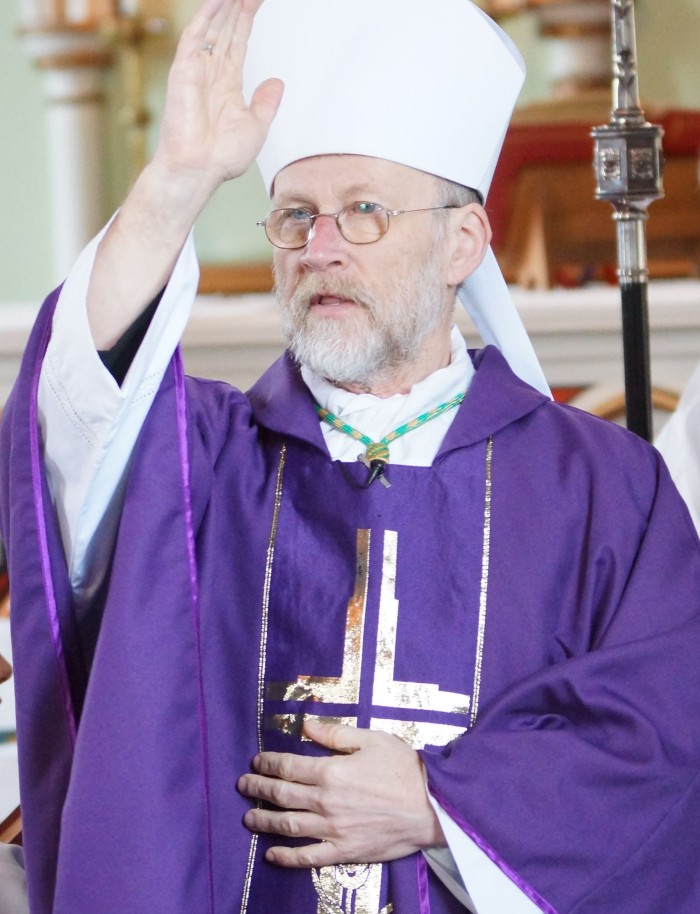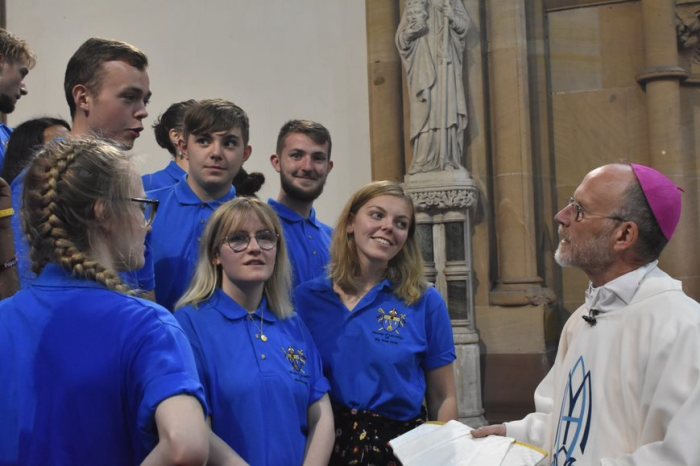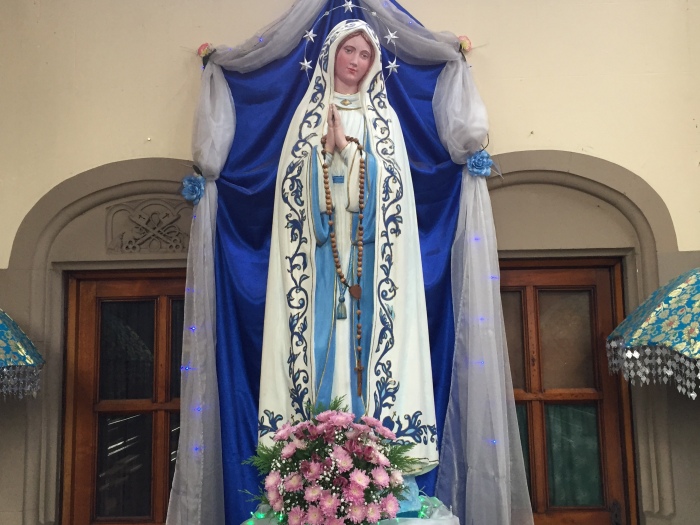A PASTORAL LETTER
FROM THE BISHOP OF LANCASTER
for the First Sunday of Lent2022
APPOINTED TO BE READ AT ALL PUBLIC MASSES IN ALL CHURCHES AND CHAPELS IN THE DIOCESE OF LANCASTER ON THE WEEKEND OF 5-6 March 2022
My dear people,
The gift of Lent is given to us once more. Let us use it well, accepting it as an opportunity to reveal our hearts to the Lord, inviting Him to enter and make His home in us. Lent is our opportunity to prepare a worthy place for this most welcome guest. Prayer, fasting and sharing with the poor will be the three instruments we use to get the work done. Notice how none of these three needs public words; prayer is a conversation within the heart, fasting and alms-giving take place most effectively in silence and in private.
 On this first Sunday of Lent we hear how our Lord, after being baptised by Saint John the Baptist in the Jordan, was taken into the wilderness by the Spirit. When the Son of God was sent by the Father into the world, conceived in the womb of Mary, He came from heaven into the wilderness of fallen creation. Now, as He prepares to begin His public ministry, He enters into the wilderness of our hearts. Sadly, as we know, we are not ready to receive Him, having allowed ourselves to be distracted by so many other things. It is our good fortune that He comes to be our Saviour.
On this first Sunday of Lent we hear how our Lord, after being baptised by Saint John the Baptist in the Jordan, was taken into the wilderness by the Spirit. When the Son of God was sent by the Father into the world, conceived in the womb of Mary, He came from heaven into the wilderness of fallen creation. Now, as He prepares to begin His public ministry, He enters into the wilderness of our hearts. Sadly, as we know, we are not ready to receive Him, having allowed ourselves to be distracted by so many other things. It is our good fortune that He comes to be our Saviour.
It is sometimes the case that we find things in life so difficult to deal with that we hide them away and don’t go in; we know it is there, but the mess is too much for us to deal with, so we leave it covered up. This may be true of our garages, lofts, drawers or emails! In a similar way we may be conscious of a health problem, and yet we fear to go to the doctor. More seriously, it can be true that my spirit needs attention and yet I do nothing.
What is needed is for us to find someone who will help us get started and work with us. That person is Jesus. We may be surprised to find Him already getting on with this work. How did He get in? Mary gives Him the key to every heart. What motivates Him? It is the Father’s love for us. What can motivate us to cooperate in this work? It is the realisation that we have been loved first. We will also find motivation in realising that life is not what it should be.
These forty days of Lent will pass quickly, and we will find ourselves in Holy Week. By then a transformation will have taken place in the world around us. That change will be obvious to see, but it will be on the outside of things. What matters now for each of us is the inside, the personal, the hidden wilderness of the soul. Remember that our Faith is not just a private matter; our lives lived with Christ will benefit others for their good in this life and for their eternal life. United with Christ, your little sacrifices can achieve a great deal of good.
Lent must be penitential, but it is still good news, part of the Gospel. ‘Turn away from sin: Believe the Good News.’ There is immense benefit to be found in a Lent well kept. It is not designed to make our lives harder. Rather it serves to make them more honest, more humble, and more a place where Our Blessed Lord can find welcome. A priest made a comment in the retreat he gave us many years ago, ‘When you preach to the people on Sunday, don’t give them a hard time – they get that during the rest of their week. That’s not what they come for. Try to raise their spirits. Help them hear the Good News’.
 May this Lent help us all to hear the Gospel more clearly, and welcome it more generously, for all our sakes, but especially for those whose needs are greatest. We turn to Mary, the first to give Jesus shelter in the wilderness of this world. She has given Jesus the key to the wilderness of every heart. Although free from sin, she accepted to do penance for us all as a way to return love for love received. May we follow her example with joy and gratitude.
May this Lent help us all to hear the Gospel more clearly, and welcome it more generously, for all our sakes, but especially for those whose needs are greatest. We turn to Mary, the first to give Jesus shelter in the wilderness of this world. She has given Jesus the key to the wilderness of every heart. Although free from sin, she accepted to do penance for us all as a way to return love for love received. May we follow her example with joy and gratitude.
With my blessing for you and your families,
+Paul Swarbrick
Bishop of Lancaster























You must be logged in to post a comment.